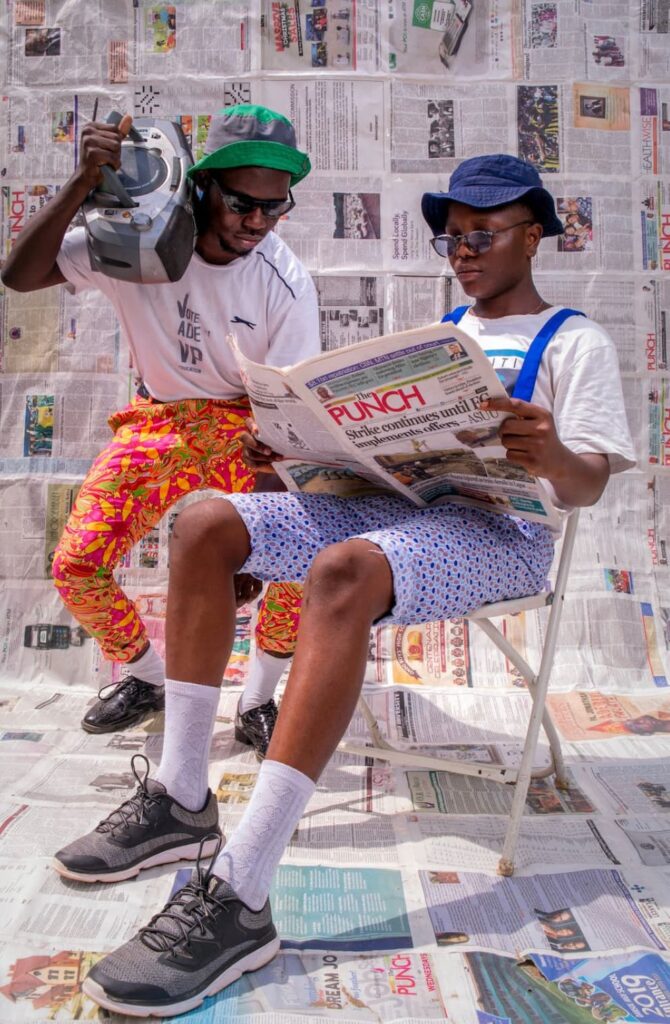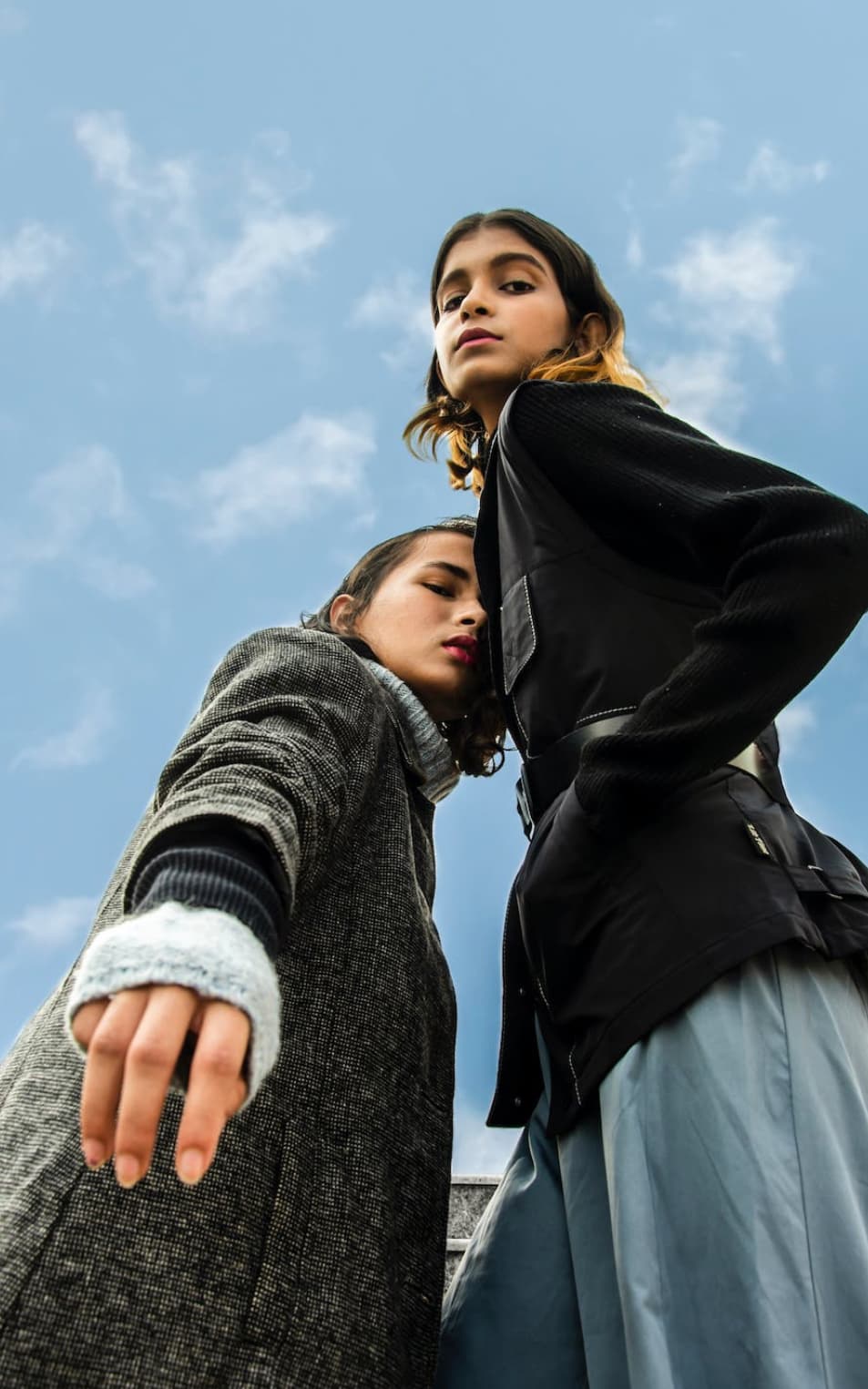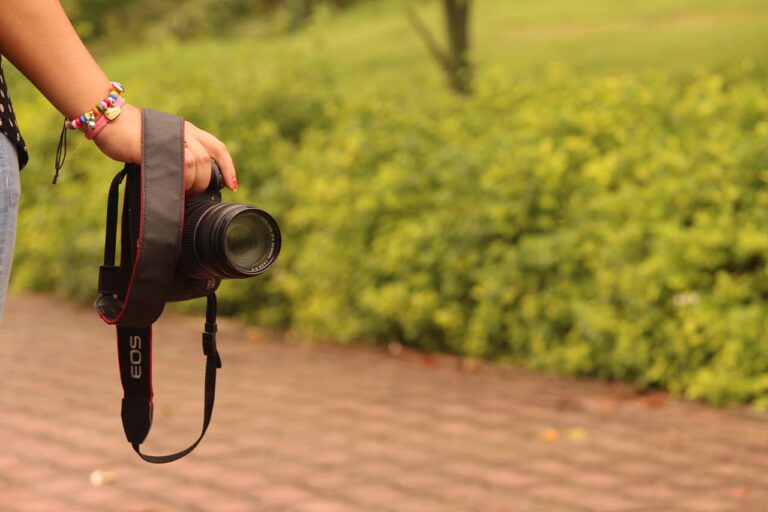For those who’ve followed Glam Observer over time, they’re aware of the platform’s dedication to unveiling the multifaceted nature of the fashion industry. Beyond the realms of designing and modeling, Glam Observer has shed light on roles such as fashion buyers, fashion magazine writers, and sustainability PR managers. In this feature, the spotlight shifts to a dynamic sector within fashion: Fashion Marketing.
Anyone possessing a combination of analytical prowess, digital expertise, and an artistic touch might have already contemplated a venture into Marketing. While it predominantly falls under the business segment of fashion, the realm of Marketing brims with opportunities for creative expression.
For individuals intrigued by this domain, it’s recommended they gear up with their notes and dive into the intricacies of breaking into fashion marketing.
What Is Fashion Marketing?
Before charting a career path, it’s pivotal to grasp the essence of Fashion Marketing. It is undeniably the linchpin of any thriving fashion enterprise. In the absence of effective marketing, brands would struggle to capture consumer attention or cultivate product awareness. Simplifying, fashion marketing is all about championing products and services, targeting a specific audience, with an overarching aim to amplify sales and generate revenue.
Fashion marketers might find themselves promoting diverse items, ranging from apparel and footwear to accessories. Their primary mission? Crafting a compelling brand image that propels product sales. The way a brand is portrayed, be it positively or negatively, hinges significantly on its marketing strategies. Moreover, marketing is instrumental in positioning a brand within specific niches, such as streetwear or luxury.
Traditional marketing vs Digital Marketing in Fashion
Times have evolved, and so have the strategies deployed by marketing departments. Gone are the days when they were solely reliant on conventional avenues like radio, television, and print. With the dawn of digitalization, an expansive spectrum of opportunities has unfurled for fashion brands. The digital realm encompasses email marketing, content marketing (inclusive of blogs, SEO), and social media (encompassing both paid advertising and organic outreach, as well as influencer marketing).
This shift to digital hasn’t only been a conduit to connect with global consumers but has also paved the way for novel business prospects. E-commerce, for instance, has emerged as a cornerstone for both budding and seasoned fashion brands. While digital marketing reigns supreme currently, an optimal blend of both traditional and digital means can help brands tap into a diverse audience spectrum.
For those aspiring for a career in this sector, a comprehensive understanding of both realms is essential, as choosing an apt marketing technique is vital to optimize marketing expenditures.
A typical day in the life of a fashion marketer might involve:
- Conducting market and competitor analysis for innovative insights.
- Brainstorming and actualizing creative campaign concepts.
- Designing marketing collaterals.
- Overseeing email campaigns from conceptualization to execution.
- Planning, executing, and reviewing ads.
- Managing diverse projects and ensuring timely execution.
- Evaluating campaigns through KPIs and ROI assessments.
- Drafting comprehensive reports.
- Cultivating robust relationships with various stakeholders.
- Handling campaign documentation and assets.
- Boosting search engine visibility.
- Assisting with campaign translations.
It’s imperative to note that these responsibilities can vary based on the specific role. Given the blend of creativity and analytical requirements, synergizing with other departments becomes essential. Collaborations could span from working alongside fashion designers to comprehend their vision for campaigns, to liaising with communication teams on campaign messaging and design. Interaction with buying and merchandising teams might also be necessary to gain insights into current trends, consumer behaviors, and product performance. In essence, Fashion Marketing is a confluence of creativity, strategy, project management, and data analytics.
Fashion Marketing Careers
The vast domain of marketing comprises a plethora of specialized roles. Here’s a snapshot of some of the distinct positions within this sphere:
Digital Marketing Roles (intern, assistant, or manager)
A Digital Marketing professional oversees a brand’s online presence, encompassing elements like SEO, SEM, paid social campaigns, affiliate programs, and strategic email campaigns. They often work in tandem with content creators, graphic designers, and data analysts to craft compelling digital stories that resonate with the target audience. Their role doesn’t stop at content creation; they continually monitor and optimize campaign performance, ensuring the highest return on investment. By analyzing metrics and user behaviors, they refine strategies, ensuring that the brand remains digitally relevant and competitive.
Email Marketing Positions (intern, assistant or manager)
An offshoot of digital marketing, email marketing professionals curate and dispatch emails to a brand’s clientele, keeping them apprised of the latest offerings, exclusive discounts, and unique programs. The end goal? Foster brand loyalty and drive purchases. However, it’s more than just sending emails. These professionals segment audiences for targeted messaging, craft compelling subject lines, and A/B test campaigns for effectiveness. They also ensure compliance with data privacy regulations and employ sophisticated tools to track metrics like open rates, click-through rates, and conversions.
Merchandising Roles
Merchandising is multifaceted. While a Collection Merchandiser collaborates with designers to draft collection plans and pinpoint lucrative product opportunities, a Retail Merchandiser delves into past sales data and orchestrates subsequent assortments. Their work also involves understanding consumer preferences and market trends. By analyzing inventory, sales, and feedback, they make informed decisions about product pricing, placement, and promotions. The goal is to maximize profitability while ensuring that the brand’s offerings resonate with its target audience.

Trend Forecasting Specialists
These visionaries spot emerging trends and prognosticate their influence on various facets of fashion, spanning from designs and hues to materials and patterns. But their work doesn’t end at mere prediction. They collaborate closely with designers, marketers, and retailers to translate these forecasts into actionable strategies. By attending global fashion weeks, analyzing cultural shifts, and monitoring social media buzz, they ensure brands remain ahead of the curve, offering products that align with future consumer desires.
Communications Team
Tasked with a brand’s comprehensive communication strategy across diverse platforms (like print, online, and social media), this team orchestrates initiatives to enhance brand recognition and sculpt its public image. They craft press releases, coordinate with media houses, and develop compelling narratives that resonate with the brand’s ethos. Their role also involves crisis management, ensuring that any negative publicity is handled swiftly and effectively to safeguard the brand’s reputation.
Public Relations Professionals
Though their duties might overlap with the communications team, PR professionals play a more focused role in steering a brand’s public reputation. They cultivate relationships with journalists, influencers, and industry experts, securing positive media coverage. Event planning, from product launches to fashion shows, also falls within their purview, ensuring the brand remains in the spotlight for all the right reasons.
Social Media Marketing Manager
Beyond mere posts and engagement, the social media marketing manager helms the strategic side, charting out short-term and long-term initiatives (both organic and paid) to amplify online brand visibility. They understand the nuances of different platforms, from Instagram’s visual appeal to Twitter’s brevity. By leveraging analytics, they identify optimal posting times, content types, and engagement strategies. Their role also involves crisis management, moderating comments, and ensuring that the brand’s online persona remains consistent and engaging.
Brand Strategists
Brand Manager
A brand manager is the custodian of a brand’s essence. They conduct comprehensive analyses on market trends, customer preferences, competitor movements, production logistics, and inventory dynamics. Their role is also pivotal in chalking out novel business strategies. Moreover, they play a critical role in brand positioning, ensuring that all promotional materials, advertisements, and brand messages resonate with the target audience and uphold the brand’s values. Collaboration is key, as they liaise with multiple departments from product development to marketing to ensure that the brand remains consistent and retains its distinct identity amidst evolving market dynamics.
Influencer and Celebrity Partnership Coordinators
These professionals liaise with influencers and celebrities, orchestrating campaigns, product launch events, fashion week collaborations, and more. Their role is to bolster brand presence through these high-profile partnerships. But beyond mere coordination, they’re also tasked with selecting the right personalities whose values align with the brand, negotiating contracts, measuring the impact of collaborations, and ensuring a seamless and mutually beneficial relationship. They have a pulse on pop culture and understand how to capitalize on trending topics and personalities for maximum brand exposure.
Event Organizers
From ideation to execution, event planners manage all facets of a brand’s events. Collaborating closely with PR teams, they ensure influential personalities, media, and clients are part of the brand’s significant occasions. Their responsibilities also include budgeting, venue selection, coordinating with vendors, managing invitations, and troubleshooting any issues that arise. They play a pivotal role in ensuring that the brand’s events offer a memorable experience, reflecting the brand’s ethos and leaving a lasting impression on attendees.
E-commerce Specialists
The digital storefront falls under the purview of the e-commerce manager. From product launches on the brand’s portal to supervising campaign photoshoots and evaluating digital outreach performance, they are at the heart of a brand’s online retail operations. Their role extends to optimizing the online shopping experience, from user-friendly interface design to secure payment gateways. They also monitor site analytics, track consumer behaviors, and implement strategies to drive traffic, enhance conversions, and boost sales.
Product Development Experts
Specialized for various segments, like women’s apparel or accessories, a product developer not only ideates and presents new products but also monitors their market performance, among a gamut of other responsibilities. They bridge the gap between creative visions and tangible products, working closely with designers, suppliers, and manufacturers. Furthermore, they assess feasibility, oversee prototype development, and are instrumental in determining pricing, ensuring that the end product aligns with the brand’s quality standards and market demands.
Paving Your Path to a Career in Fashion Marketing
In the diverse world of fashion marketing, there exists a multitude of roles, each with its unique set of qualifications. While one might think that jobs like stylist or designer are harder to snag, the vastness of the marketing domain means that traditional degrees can get one’s foot in the door.
- Though a degree in Marketing stands out as the most obvious choice, there are other academic avenues that can facilitate an entry into the fashion industry. For instance, Business or Management degrees offer foundational insights into business principles, including marketing. These globally-focused disciplines equip candidates with skills like data analysis, strategic thinking, and communication, making them assets for international fashion enterprises.
- Further, pursuing Economics or Finance could bolster one’s grasp of market dynamics and furnish them with analytical tools – valuable assets in fashion marketing. On the other hand, with the digital age in full swing, a degree in Digital Marketing or Social Media can prove indispensable. Knowing the intricacies of online trends and strategies positions one favorably for crafting effective digital campaigns.
Lastly, degrees in Communication or Public Relations not only emphasize the importance of interpersonal skills in the industry but also impart knowledge about advertising strategies, project management, and event planning.
Essential Skills for Fashion Marketing Success
Analytical Prowess
The fashion marketing landscape demands a keen analytical mind. One must be adept at researching, discerning trends, and evaluating campaign outcomes using tools like Google Analytics and Excel. This involves not just crunching numbers but also interpreting them in a manner that informs decision-making. With the fashion industry constantly evolving, the ability to analyze past campaigns, customer behaviors, and sales patterns becomes invaluable. A marketer’s success often hinges on their ability to forecast market shifts based on historical data, ensuring that their strategies are always one step ahead of the curve.
Technical Acumen
The digital tools of today, ranging from Facebook Ads and Google Ads Manager to Adobe Campaign and HTML, are indispensable for a marketer. Additionally, proficiency in SEO can enhance one’s value in the industry. With the rise of e-commerce and online platforms, having a sound technical foundation isn’t just an advantage—it’s a necessity. A marketer needs to navigate complex digital landscapes, understand the nuances of different platforms, and deploy strategies tailored to each. This requires continuous learning, as the digital realm is ever-evolving.
Innovative Flair
In an ever-competitive world, creativity is paramount. With brands vying for consumers’ attention, marketers need to brainstorm innovative campaigns that resonate and captivate. It’s not enough to follow the crowd; to truly make an impact, one needs to think outside the box. This could mean leveraging emerging technologies, tapping into novel aesthetics, or finding unique storytelling angles. In the realm of fashion, where trends can shift overnight, the ability to offer fresh, compelling narratives is a marketer’s greatest asset.
Project Oversight
Beyond ideation lies execution. Fashion marketers must be adept at strategizing, ensuring that projects, whether campaigns or events, are executed seamlessly and within set timelines. This demands a meticulous approach, balancing creativity with pragmatism. It means setting clear objectives, allocating resources wisely, monitoring progress, and pivoting when necessary. Effective project management also involves foreseeing potential challenges and developing contingencies to address them, ensuring that campaigns maintain their momentum and achieve their goals.
Interpersonal Skills
Given the collaborative nature of marketing, clear communication with various stakeholders, from internal teams to external partners, is crucial for ensuring product promotion success. But it’s more than just conveying information—it’s about building relationships. Establishing trust, understanding different perspectives, and fostering a spirit of teamwork are all essential in a field where collaborations can make or break a campaign. Furthermore, the ability to persuade and influence, be it pitching an idea or negotiating terms, is a cornerstone of successful marketing.
Adaptive Organization
Fashion marketing can be frenetic. Skills like attention to detail, resilience, flexibility, and autonomy are pivotal. The ability to thrive under pressure and tight schedules sets apart the exceptional from the ordinary. In a world where timelines are tight and expectations high, being organized is not a luxury but a lifeline. This means prioritizing tasks, managing time effectively, and being agile enough to adapt to sudden changes. Moreover, a marketer should cultivate a proactive mindset, anticipating needs and addressing them before they become challenges.
Taking the First Steps: Internships and Job Applications
Armed with the necessary knowledge and skills, the next logical step is to venture into the world of fashion marketing. For novices, internships in marketing or its subfields, such as digital marketing or e-commerce, provide invaluable exposure. Remember, each role offers unique experiences, so be open to diversifying. As you embark on this journey, bolster your application with a compelling resume, a tailored cover letter, and perhaps a unique portfolio. Networking can also be a powerful tool in this industry. So, step out, connect, and seize those opportunities.







